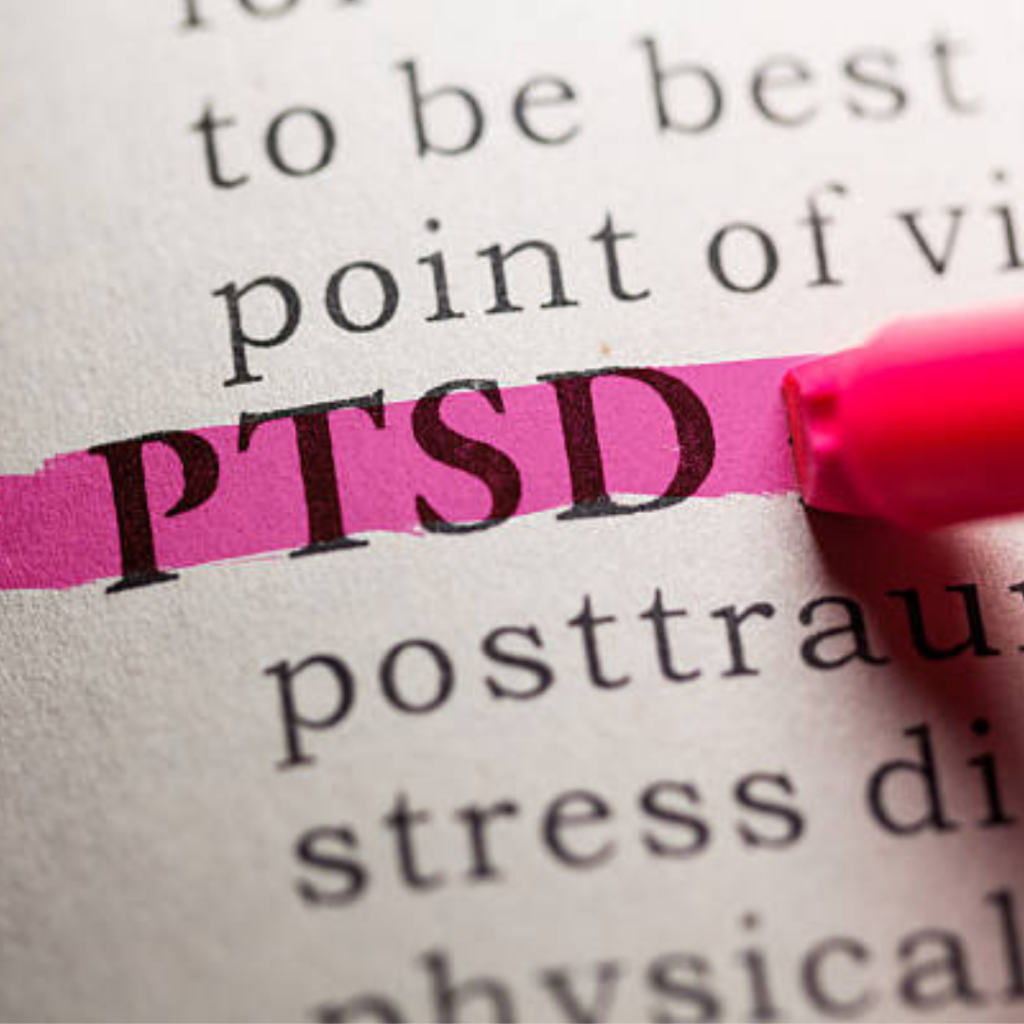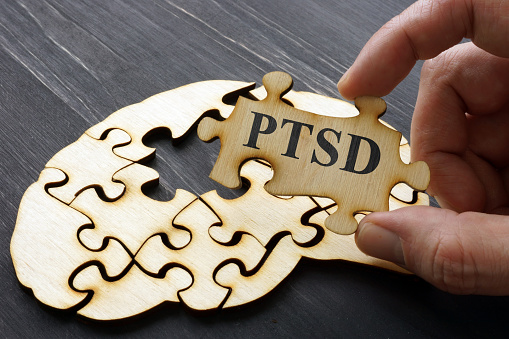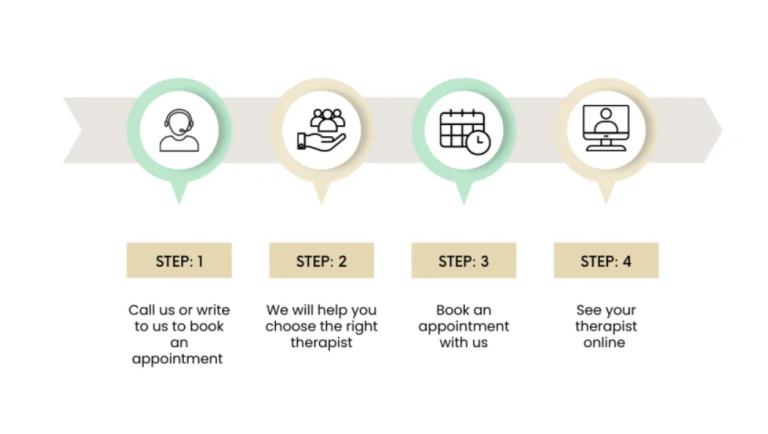
Therapy for Post Traumatic Stress Disorder
Therapy for PTSD can feel like a ray of light, guiding you through the dark towards a possibility of healing and reclaiming joy.
35000
Sessions
22+
YEARS EXPERIENCE
500000+
LIVES IMPACTED
What Is Post Traumatic Stress Disorder?
PTSD, also known as Post-Traumatic Stress Disorder, is a mental health condition that arises when you experience or witness a traumatic event.
As the name suggests, if you are experiencing PTSD, you feel extreme stress or discomfort when something reminds you of a traumatic event you experienced. This discomfort would feel like extreme anxiety, overwhelm, nightmares, and flashbacks about that event.
Living with PTSD can be challenging, as you feel stuck and the heavy emotions may feel like a lot to process.
Asking for help is also often difficult, even from loved ones. However, there is hope. Gentle and regular work with a trained therapist can help you overcome PTSD and lead a joyful, peaceful life.
Therapy for Post Traumatic Stress Disorder: Benefits and Process
Why some people develop PTSD and others do not is due to differences in the nature and intensity of trauma as well as differences in availability of coping mechanisms and supportiveness of the environment.
Therapy for PTSD provides a safe space to untangle the knots binding you to the past, guided by a therapist who helps you navigate and understand the emotions tied to trauma. Trauma Therapy is not about erasing the past but acquiring tools to cope, shaping a healthier present and future.
Living with trauma may make you feel lost and purposeless, like you’re on autopilot without feeling connected to the present. Trauma-informed therapists use techniques such as mindfulness and body-based awareness to ground you in the now.
Therapy for PTSD is a judgment-free space to process and heal with a trusted professional. You can consider therapy as a resource to gradually reclaim control, build resilience, and shape a path toward a more grounded and fulfilling life.

Here are some more benefits of choosing a trauma therapist to manage your PTSD:
- Healing your emotions: A PTSD counsellor can provide a dedicated space for you to learn about your emotions and processes linked to trauma, enabling healing and emotional well-being.
- Learning healthy coping skills: The emotionally-challenging aspects of PTSD can make it difficult to adopt healthy coping mechanisms. Therefore, a therapist can help you learn healthier coping skills to manage difficult emotions that come up due to trauma.
- Feeling Empowered: The experience of trauma can make you feel like you are stuck in a narrative of being a powerless person. Therapy is an empowering space that encourages you to create a positive perspective around trauma and reclaim your sense of agency over your story beyond the traumatic event.
- Improving your quality of life: Taking up therapy for PTSD can enhance your overall quality of life by resolving the negative impacts of PTSD on work, interpersonal relationships, productivity, and daily functioning, helping you lead a more fulfilling life.

Signs and Symptoms of Post Traumatic Stress Disorder
Trauma can turn your world upside down, making you feel unsafe even in familiar places and with people you felt safe with before. You may feel restless in moments meant for relaxation, constantly tying you to traumatic feelings and memories.
How you cope with trauma may be different from another individual. Therefore, outward appearances may not reflect your inner pain, making the signs of trauma go unnoticed. Recognizing and taking these signs seriously is crucial for getting the help you need to break free from the hold of trauma.
We have highlighted some of the other signs and symptoms of PTSD below:
- Re-experiencing symptoms, such as flashbacks, memories, and nightmares about the traumatic event.
- Mood-based and emotional symptoms, like being hypervigilant of your surroundings, feeling isolated, lonely, irritable, and having mood swings.
- Physical symptoms, like unexplained headaches, stomachaches, and muscle pain.
- Changes in behavior, indicated by sleep disturbances, avoidance of reminders of the traumatic event, addiction, difficulty remembering things, making decisions, and loss of interest in pleasurable activities.

Are the symptoms of PTSD holding you back?
Counseling can be a great tool for you to heal and reclaim your joy.
We are here for you.
Causes Behind Post Traumatic Stress Disorder
When the mind and body experiences something that is too fast, too soon, and too much, it can increase chances for you to experience PTSD.
Therefore, you are not experiencing PTSD because there is something wrong with you. Instead, you are going through it because what happened was beyond your capacity at that moment to process.
While PTSD can arise after any traumatic event, here are some common reasons behind it:
- Sexual, emotional, or physical abuse or assault
- Bullying
- Natural disasters- like floods, landslides, cyclones, or earthquakes
- War and conflict
- Accidents
- Abuse, neglect, or abandonment during childhood
- Losing a loved one
- Chronic ilnesses and near-death experiences
Self-Help Strategies To Manage Post Traumatic Stress Disorder
If you are looking to get started to learn and heal from PTSD, you can try the following self-help strategies. These strategies are easy to implement and incorporate into your healing journey. We have highlighted them below:
- Mindfulness Meditation: Mindfulness Meditation can be a great way to promote relaxation and calmness in the body. Being mindful can also help you stay connected to the present.
- Minimize Triggers: In the initial phases of recovering from PTSD, you may feel overwhelmed when you encounter a trigger or memory about the traumatic event. Therefore, when are getting started with recovery, you can try minimizing exposure to situations and people that can trigger the traumatic memory.
- Physical activity and Exercise: Engaging in physical activity and exercise can reduce anxiety, and improve your overall mood and well-being.
- Learn more about Trauma: Educating yourself about trauma and its manifestations in the mind and body can be empower you to navigate through trauma with awareness.
While the journey to recovering from PTSD can feel like a slow and excruciating process, remember that every step you take from trauma to triumph is significant, no matter how small it may be.
Success in overcoming trauma isn’t about reaching a final destination. Instead, it’s about navigating the hurdles and obstacles, with a supportive hand to guide you along the way.
Meet Our Therapists & Counselors and Book an Appointment
Our therapists are all trained psychologists qualified in helping people work through their difficulties. We work with individuals across different populations. We use an eclectic range of psychotherapies from solution oriented to insight oriented to holistic meditative approaches, depending on the need and comfort of the clients.
"What Our Clients Say about Our Online Counseling Services"








